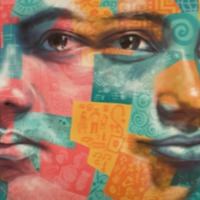
Like she said, reaching someone you think you’re going to get help and they put the guilt on you. When I was trafficked to the UK, my story is similar. So I escaped my traffickers, told my story to some people, some people believed me. They gave me accommodation still to sexually abuse me because that’s what they wanted and they were telling me, never contact police, if you this they will take you back home. They told me all sorts of stuff. But to me I thought if I told the police or people who are concerned, I’ll get the help I needed.
So on a very bad day I was beaten up here, I called the police, I couldn’t stand it anymore. Because I was trafficked back home, promised a better life in the UK, turned into a prostitute in the UK. So the police came, I spoke to them, they didn’t believe me. They didn’t even listen to me. They just detained me to a police station. From the time I called them. The next thing I knew I was in a removal centre to be deported back to my country.
That’s when I got my brain back and I was like people warned me, never call police, never do this and I was so innocent I didn’t know what to do. Because I thought if you have a problem, you call the police. And that’s what I did. I stayed in the removal centre with tormenting letter saying you’re going to be deported back home, you’re illegally whatever, I don’t know what’s legal I don’t know what’s illegal, all sorts of things.
In the detention centre I was there helpless, I didn’t know what to do. I didn’t know where to start from. I was just there waiting to be taken back to my traffickers. So, a lady came to my rescue, I don’t know how she came, how she knew that I was there, she’s the lady just opposite me. From the Poppy Project. They just put my name on the visas list, they called me, she came, ‘Ellie’, I said yes. She asked me how I grew up, how I came into UK, how I escaped, how I contacted the police, and that’s how I was released from the detention centre.
This narrative was recorded at Trust Conference, the Thomson Reuters Foundation’s flagship event. Trust Conference is committed to finding real solutions to fight slavery, empower women, and advance human rights worldwide. The annual event convenes global corporations, lawyers, government representatives, and pioneers at the forefront of the fight for human rights.









